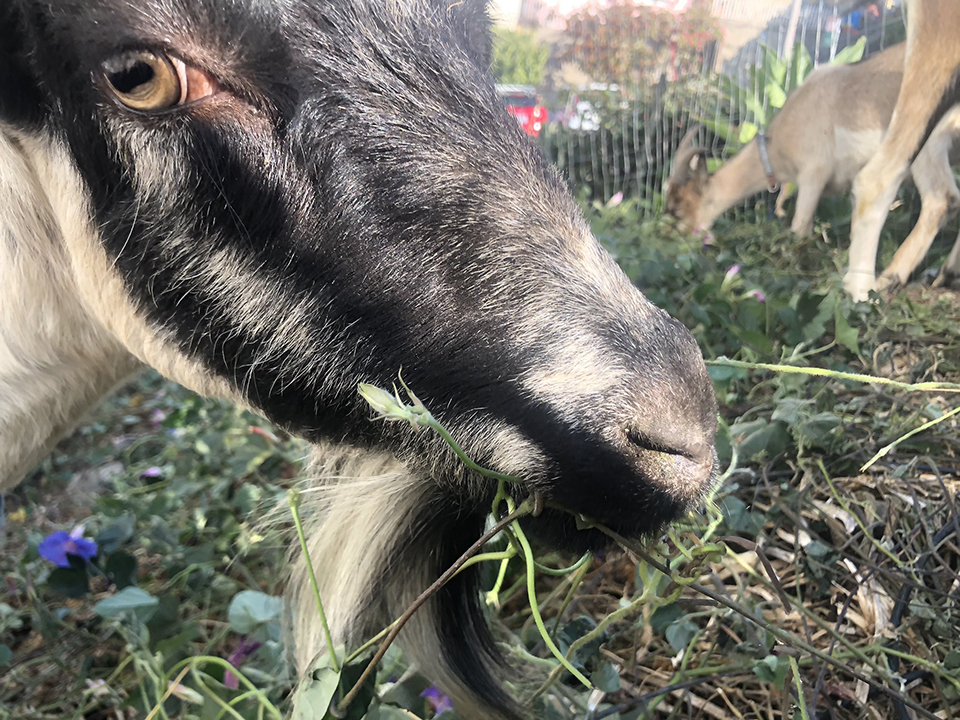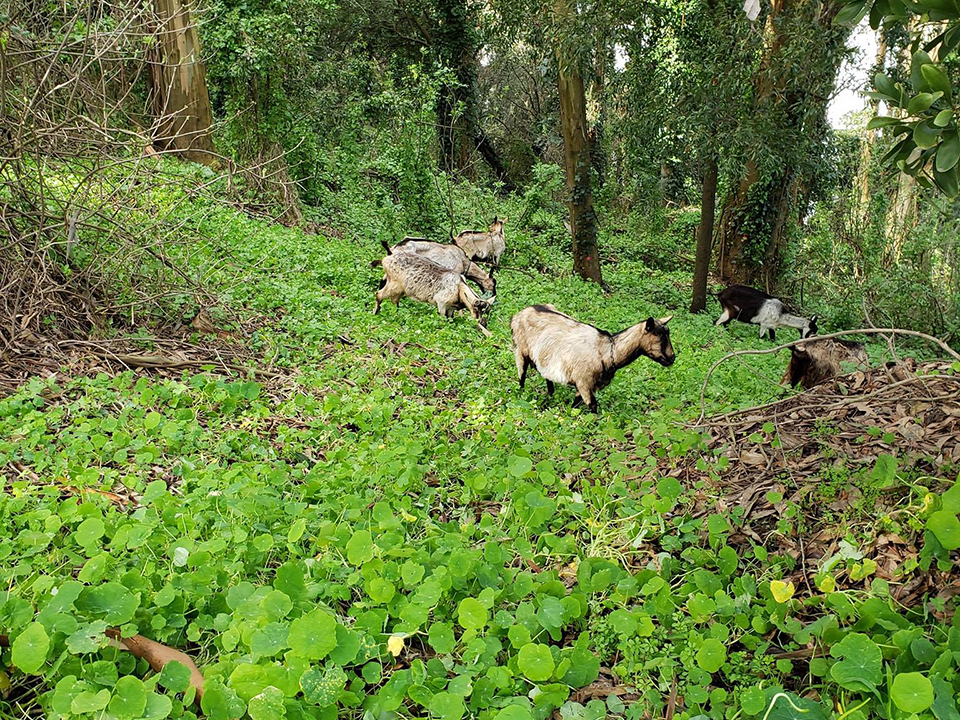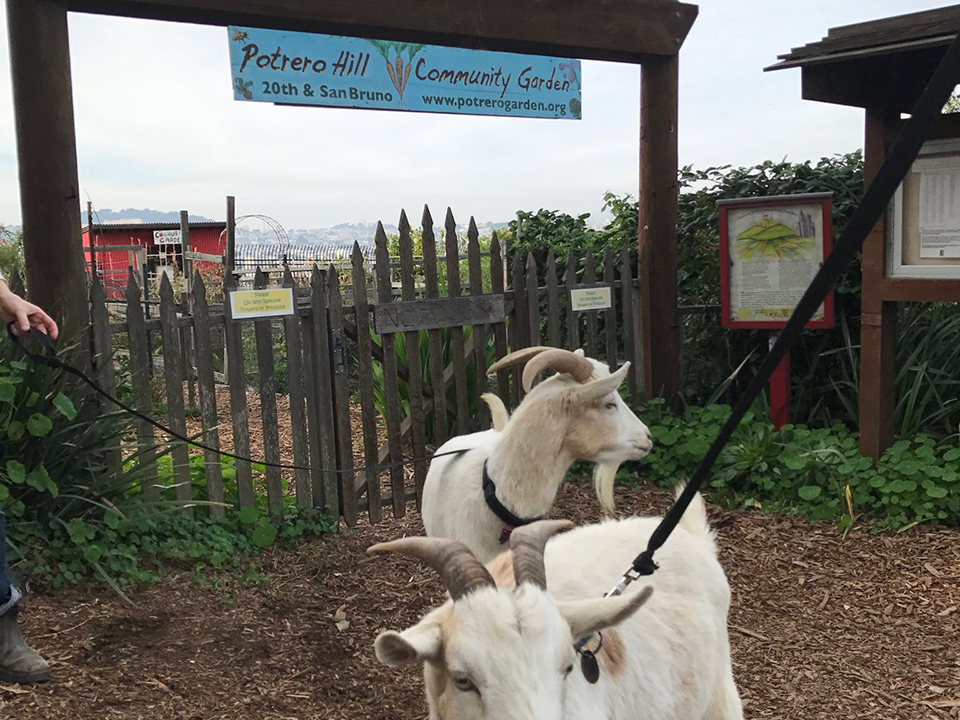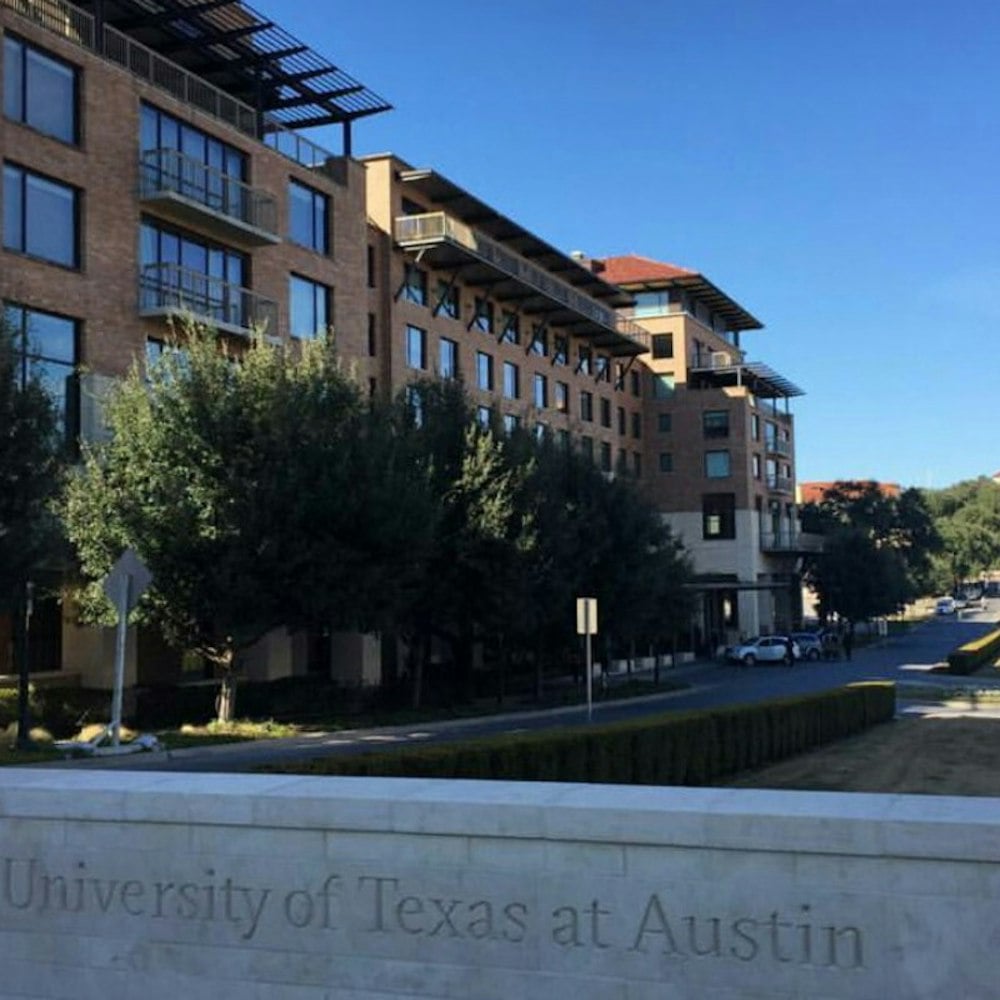
On Monday afternoon, about a dozen goats arrived at the Potrero Hill Community Garden (780 San Bruno Ave.) to clear the way for gardeners by chowing down on invasive weeds.
The goats, from Bayview-based nonprofit City Grazing, will stay for about a week, a representative told Hoodline. Their appetites will lead them through hilly and unstable ground that human workers cannot safely access.
In a statement, Rec & Park described the goats as "a safe, cost-effective and environmentally friendly solution to invasive plants and vines on the rugged hillside to the north of the Community Garden."

City Grazing's herd is largely comprised of retired dairy goats and rescue goats that needed new homes. This week's hungry crew includes goats named Princess, Spice, Maryrose, Fern, Charmer, Lucky, Wakanda and Wombat.
The public is invited to watch the goats enjoy their snacks, but Rec & Park urges visitors not to feed them through the fence, as many foods are toxic to them.

The goats have been hard at work in a number of city parks in recent years. Their grazing has been utilized to uncover Fort Mason's historic paths to Aquatic Park and to reduce the risk of fire on Twin Peaks.
The natural weed-removers were also put to work in the 61-acre Mt. Sutro Open Space Reserve, when UCSF Parnassus hired them to remove flammable undergrowth and trim branches.

The City Grazing herd isn't the first to visit the Potrero Hill Community Garden. Back in the 1950s, the "Goat Lady" of Potrero Hill, Estelle West, let her herd graze there as well. Previous generations of City Grazing goats have also dropped by in recent years to munch on the weeds.

According to City Grazing's website, grazing encourages regrowth of perennial native plants, promoting healthy, deep root development in these more desirable natives. That leads to more water stored in the earth, reducing the risk of fire.
The goats also support the restoration of soil fertility on the other end of the grazing process, by providing organic fertilizer with their digestion.
Though the goats should wrap up in the garden early next month, their job won't be entirely finished. Rec & Park will bring them back several times over the next year for long-term weed control. Then, landscapers will seed the hillside with pollinator plants to outcompete the invasive species.









